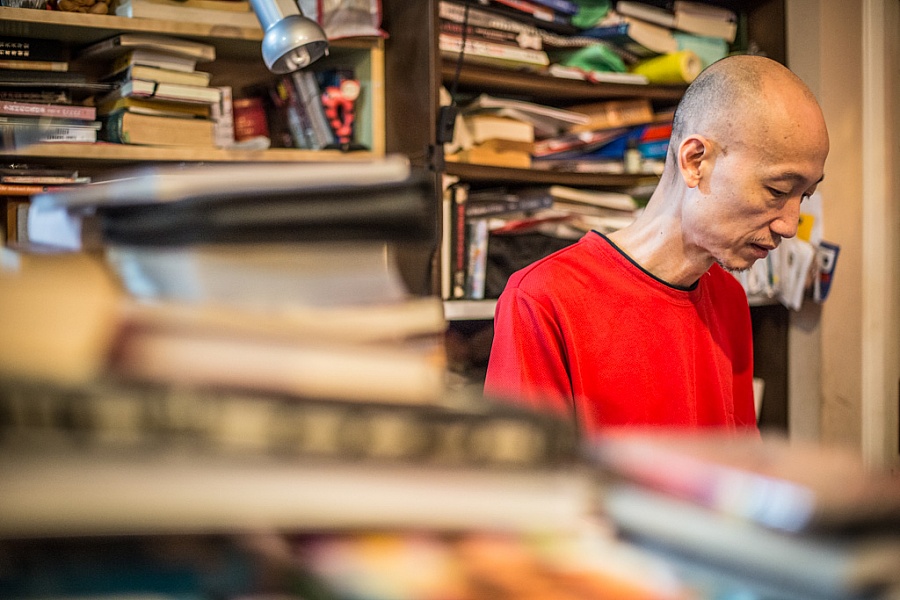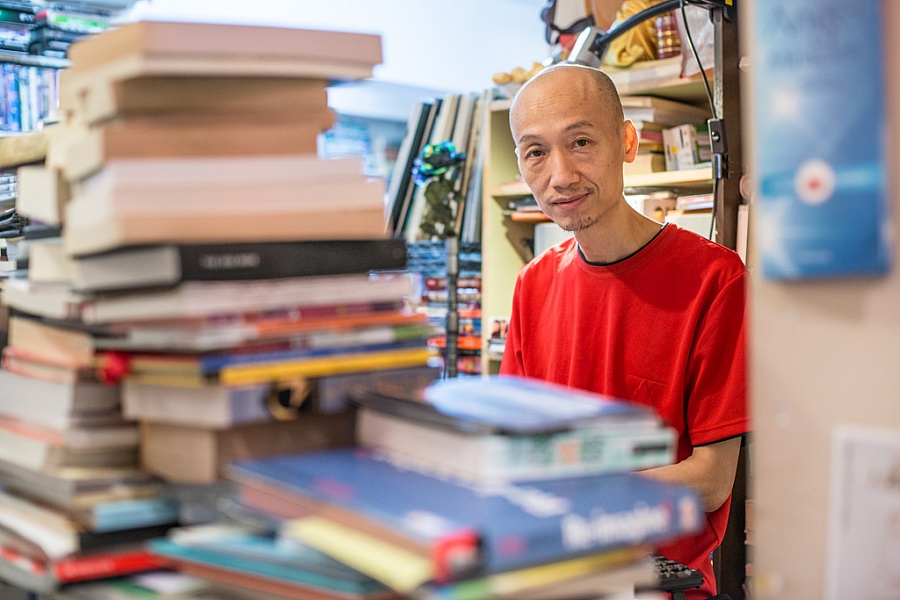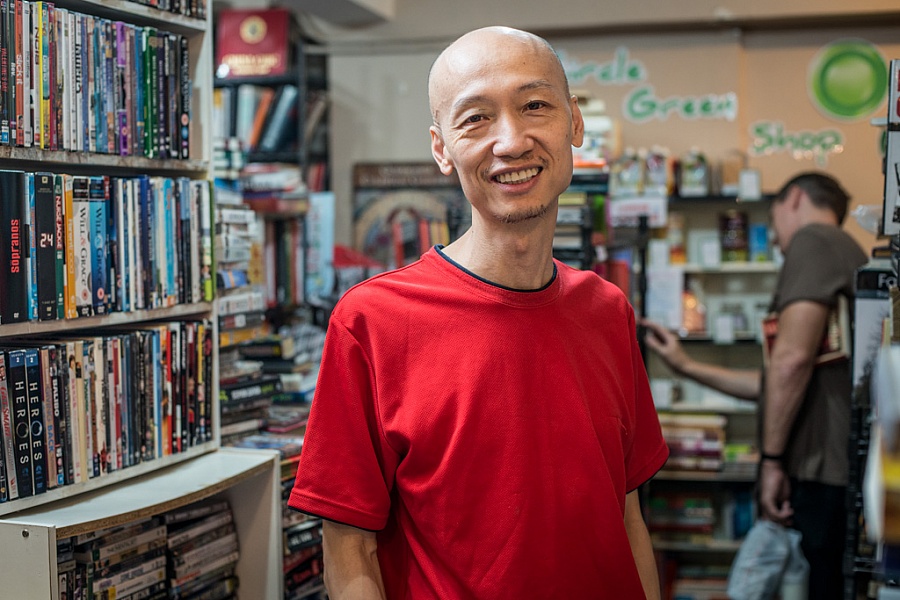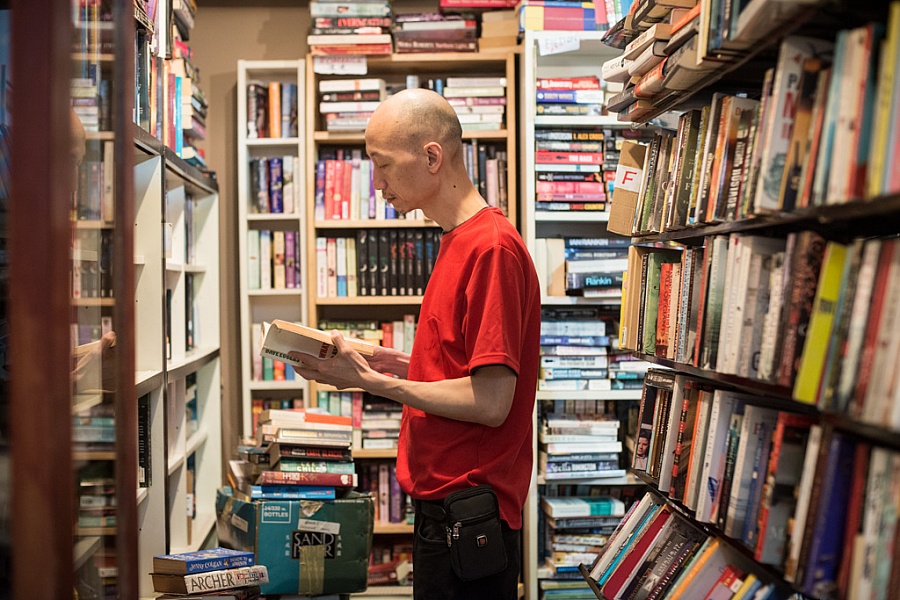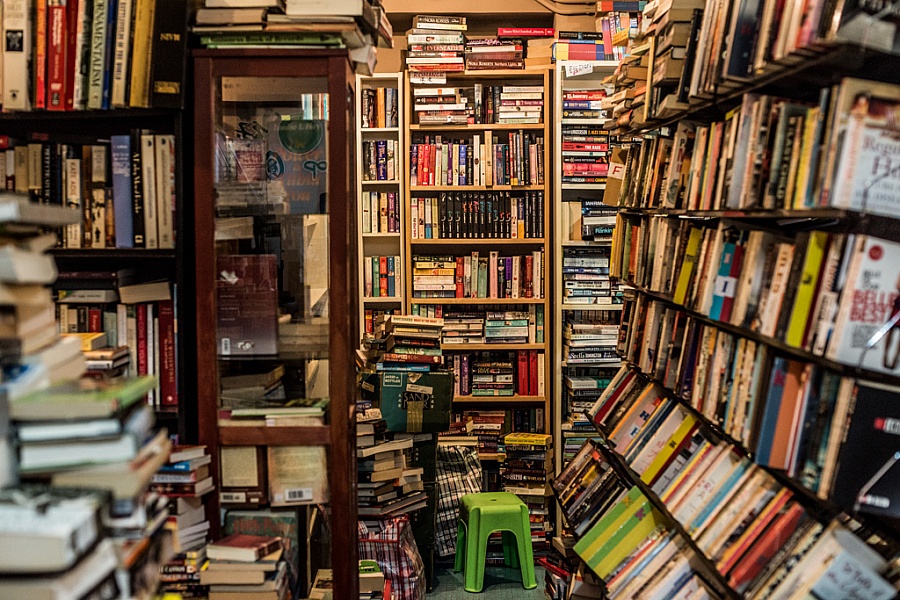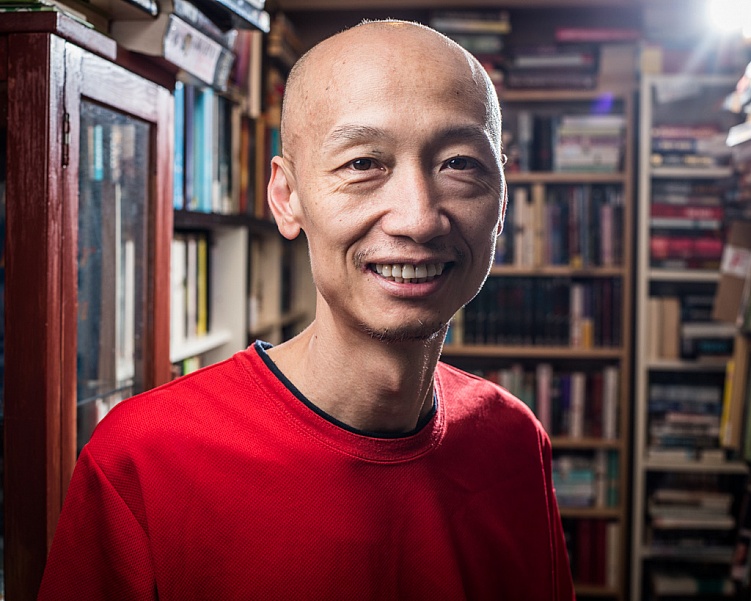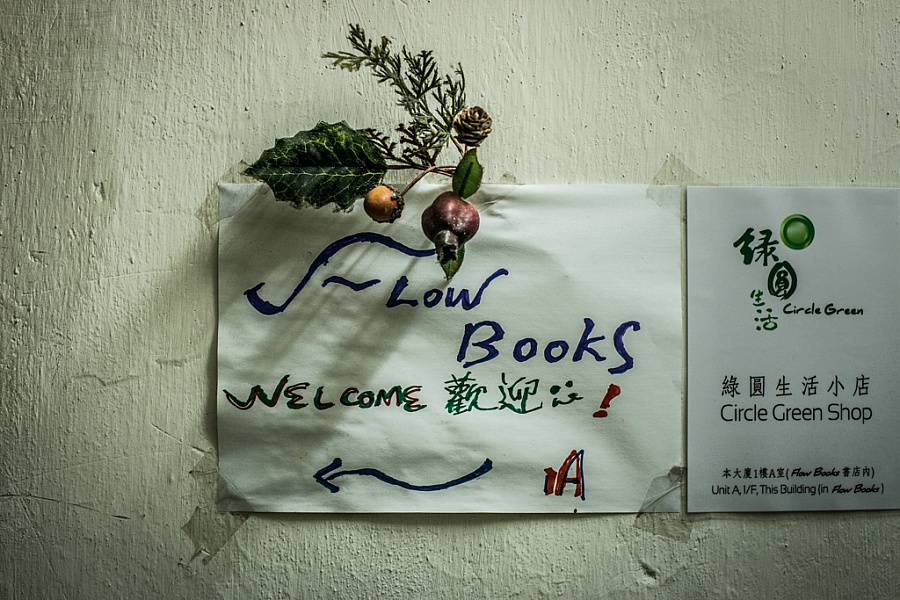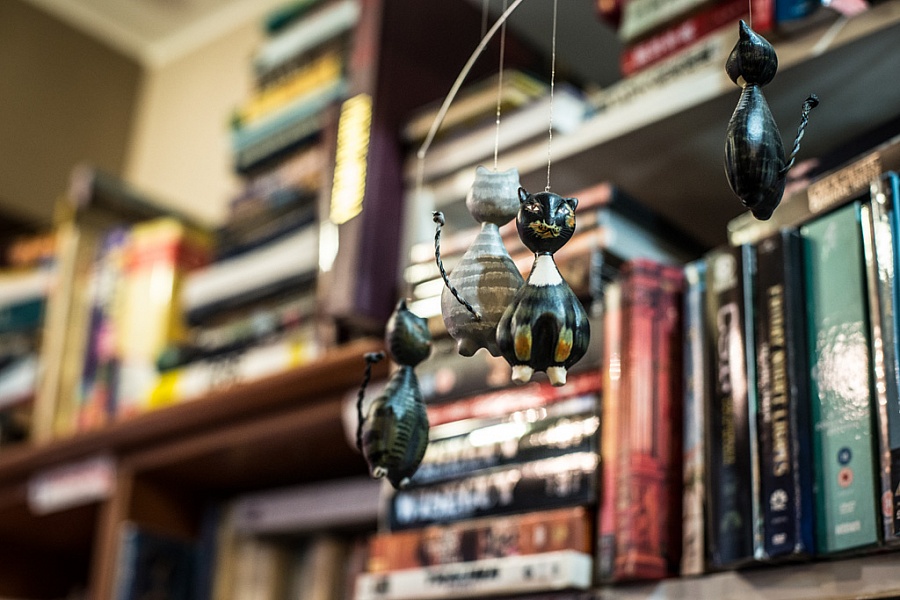This is a story about Surdham’s second-hand book store. However, I must first introduce my friend Chow Chung-wah. Chung-wah studied law at the University of Hong Kong but instead of practising law, she became a travel writer with Lonely Planet. She is also a regular contributor to the BBC’s Chinese-language website, writing on Hong Kong issues. If giving up law to be a writer is a bold decision, she made another bold decision several years ago – living green. Instead of shopping for new furniture, Chung-wah took home what people threw away. She also wrote to various environmental organisations asking where she could recycle empty wine bottles because she couldn’t find any glass recycling point near her home. And she stopped buying new books. “I only go to second-hand book stores for books,” she told me.
This was how I came to know Surdham and his bookshop which sits right underneath the Central Mid-Level Escalator on Hollywood Road. Since then, I’ve also been going there for books though I’d still buy brand new ones. There are about 10,000 books in the 800 square-feet store, where melodies of world music flow in the air. The books are in good condition, and they’re sold at only a fraction of what one would pay in a regular bookstore. The second-hand titles pile up from floor to ceiling and overflow on to the staircases outside. Though Surdham’s centrally-located business isn’t as tidily organized as the major chain bookstores that we’re used to in Hong Kong, it’s cosy enough to let booklovers walk between the bookshelves and dip into the titles one by one.
Surdham has been running his second-hand bookshop for 15 years. The 49-year-old’s business is about recirculating books, CDs and DVDs. He calls the bookstore Flow. Flowing books, music and films allow precious resources to circulate between users. The store has a wide range of titles from fiction to design, from self-help to cooking and travel. Surdham read philosophy in university and he previously worked in a charity to promote organic farming because he disapproves of this city’s love of excess. He stresses that therefore he’s been engaged in the same business over the years even though the products have changed from agriculture to books.
He buys second-hand books, CDs and DVDs from people who take them to his shop. He can pay them cash or give them book coupons to use in his store. He also welcomes donations. “The best books we get are those donated to us. I think it is a natural outcome. People who feel adequate usually want to share the best with the others,” he said.
“The government hardly encourages the idea or practice of recirculating books, but as long as there are people who love to see the books they no longer need go to trusted hands, I’ll be around. I am only doing my part to make this happen. It is always about conserving resources at a community level. I’m here to serve the Central community. I’ve moved several times but my bookstores are always along the escalator.” he said.
Surdham has moved his store three times before due to a combination of high rent, redevelopment buyout of the building that his second store was in, and bad business. The biggest challenge his business now faces is the digital revolution. The impact of electronic books is easily felt while CD and DVD sales are in terminal decline since music and film downloads have become far too convenient. Surdham has to contemplate how to respond to these irreversible changes but he reiterates he’s worried. “These changes are a fact, I may have to sell something else but I’m not worried. It’s not a big deal, what matters is resources can keep circulating, whether it’s books or something else. There are plenty of things we should recirculate in Hong Kong,” he said.
Surdham believes an effective way to help resources circulate and recirculate is through redesigning the city’s rubbish collection points. His idea is to build multi-storey rubbish collection depots where one floor will be set aside for abandoned items that are still in good condition, whether they are furniture, electrical appliances, clothes or books. People can then go there to take home what they need. “Many things we throw away are actually still in good condition and can be recycled. But once they’re thrown away, they pile up with other rubbish and become dirty, then no one wants to take them and they’ll only end up in a landfill,” Surdham said.
Surdham’s Q&A:
Q: What do you like the most about Hong Kong?
A: Hong Kong is a small city, things are reachable and touchable.
Q: What do you dislike the most about Hong Kong?
A: It is a blind society. For example, many people blindly follow their leader. I am not going to elaborate on that; I prefer leaving room to the readers to interpret.
Q: What does Hong Kong need to do for it to be a sustainable city?
A: We can get it done fairly easily but it’s also difficult to achieve. We have more than sufficient resources to make Hong Kong sustainable. But the government is not doing what it should do to make it happen. The solution is the government. It should give us a free hand to make Hong Kong sustainable.
